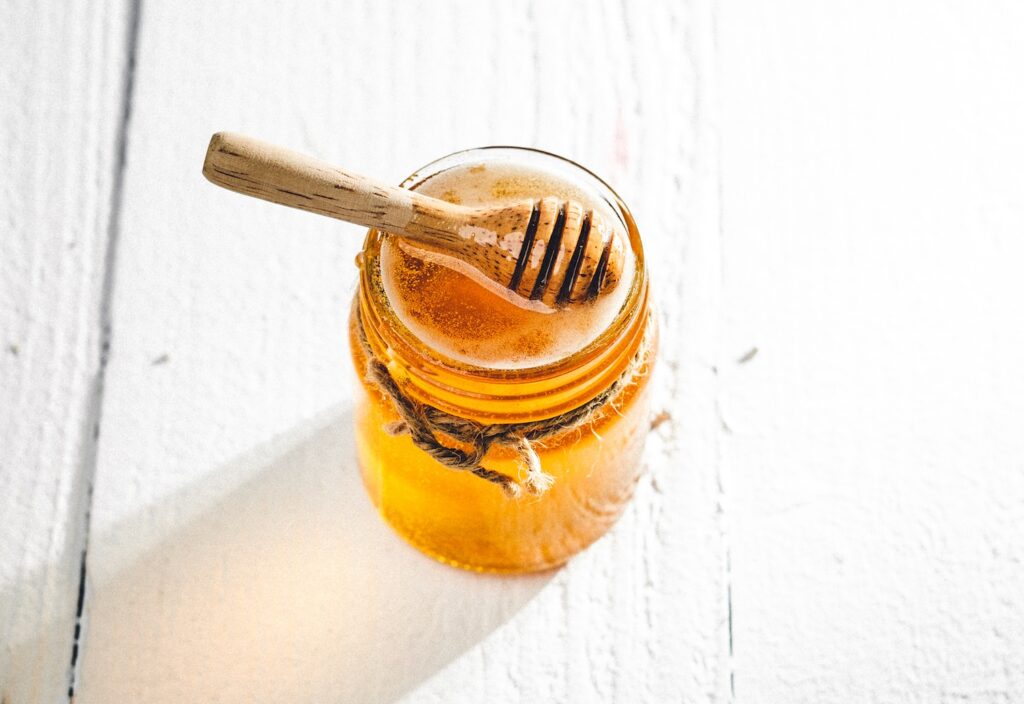Home Grown Welsh Honey with Antibacterial Properties: Who Needs Manuka Honey?

In recent years, honey has gained recognition for its various health benefits and medicinal properties. Manuka honey, derived from the nectar of the Manuka tree in New Zealand, has particularly gained prominence due to its potent antibacterial properties. However, an emerging contender in the honey market is the homegrown Welsh honey, which is garnering attention for its own remarkable antibacterial qualities. With comparable efficacy and a more sustainable sourcing process, Welsh honey is poised to challenge the dominance of Manuka honey. This article explores the antibacterial properties of Welsh honey, its potential benefits, and why it may become a viable alternative to Manuka honey.
-
Unique Floral Sources:
Welsh honey derives its antibacterial properties from a diverse range of floral sources found in the region. Welsh bees collect nectar from a variety of plants, including wildflowers, heather, and gorse, resulting in a rich and complex blend of floral flavors. This diverse nectar collection is believed to contribute to the broad-spectrum antibacterial activity found in Welsh honey.
It’s not just anecdotal either – researchers at Cardiff University experts analysed the honey created by bees from 250 Welsh hives for antimicrobial properties and studies showed a Welsh honey, grown by amateur beekeeper Chris Hickman, of Tywyn, Cardigan Bay was “at least as potent” as New Zealand’s famed Manuka.
-
Antibacterial Activity:
Several scientific studies have demonstrated the antibacterial properties of Welsh honey. A study published in the Journal of Applied Microbiology found that Welsh honey exhibited substantial antibacterial effects against various pathogens, including Staphylococcus aureus and Escherichia coli. The study conducted at Cardiff Metropolitan University revealed that Welsh honey was effective against antibiotic-resistant strains of bacteria, including Methicillin-resistant Staphylococcus aureus (MRSA).
These findings suggest that Welsh honey possesses significant antibacterial potential, comparable to that of Manuka honey.
-
Active Compounds:
The antibacterial activity of Welsh honey can be attributed to the presence of various active compounds. Researchers have identified high levels of hydrogen peroxide, a well-known antimicrobial agent, in Welsh honey. Additionally, Welsh honey contains phenolic compounds, flavonoids, and other antioxidants, which contribute to its antibacterial properties. These compounds work synergistically to combat bacteria and support the immune system.
-
Sustainable Sourcing:
One significant advantage of Welsh honey over Manuka honey is its sustainable sourcing process. While Manuka trees are predominantly found in New Zealand, Welsh raw honey is produced by local beekeepers in Wales – and they often sell honey direct from the hive, or in small, independent local shops. This localization reduces the carbon footprint associated with long-distance transportation and supports local beekeeping communities. Choosing Welsh honey over Manuka honey promotes sustainability and helps protect the environment.
-
Cost-Effectiveness:
Another compelling reason to consider Welsh honey as an alternative to Manuka honey is its affordability. Manuka honey, due to its limited geographical availability and high demand, often comes with a hefty price tag. In contrast, Welsh honey is more accessible and reasonably priced. Consumers can enjoy the antibacterial benefits of honey without straining their wallets.
Welsh honey has emerged as a formidable contender to Manuka honey, offering comparable antibacterial properties while presenting unique advantages. Its diverse floral sources, proven antibacterial activity, and sustainable sourcing make it an appealing choice for consumers seeking natural remedies.
With Welsh honey’s affordable pricing, it offers an accessible alternative to Manuka honey. As awareness grows about the potential of Welsh honey, it has the potential to revolutionize the honey market and provide a sustainable, locally sourced option for those seeking antibacterial honey products.
Sources:
https://www.bbc.co.uk/news/uk-wales-34965010
https://www.cardiff.ac.uk/news/view/56308-honey-needed-for-superbug-fight